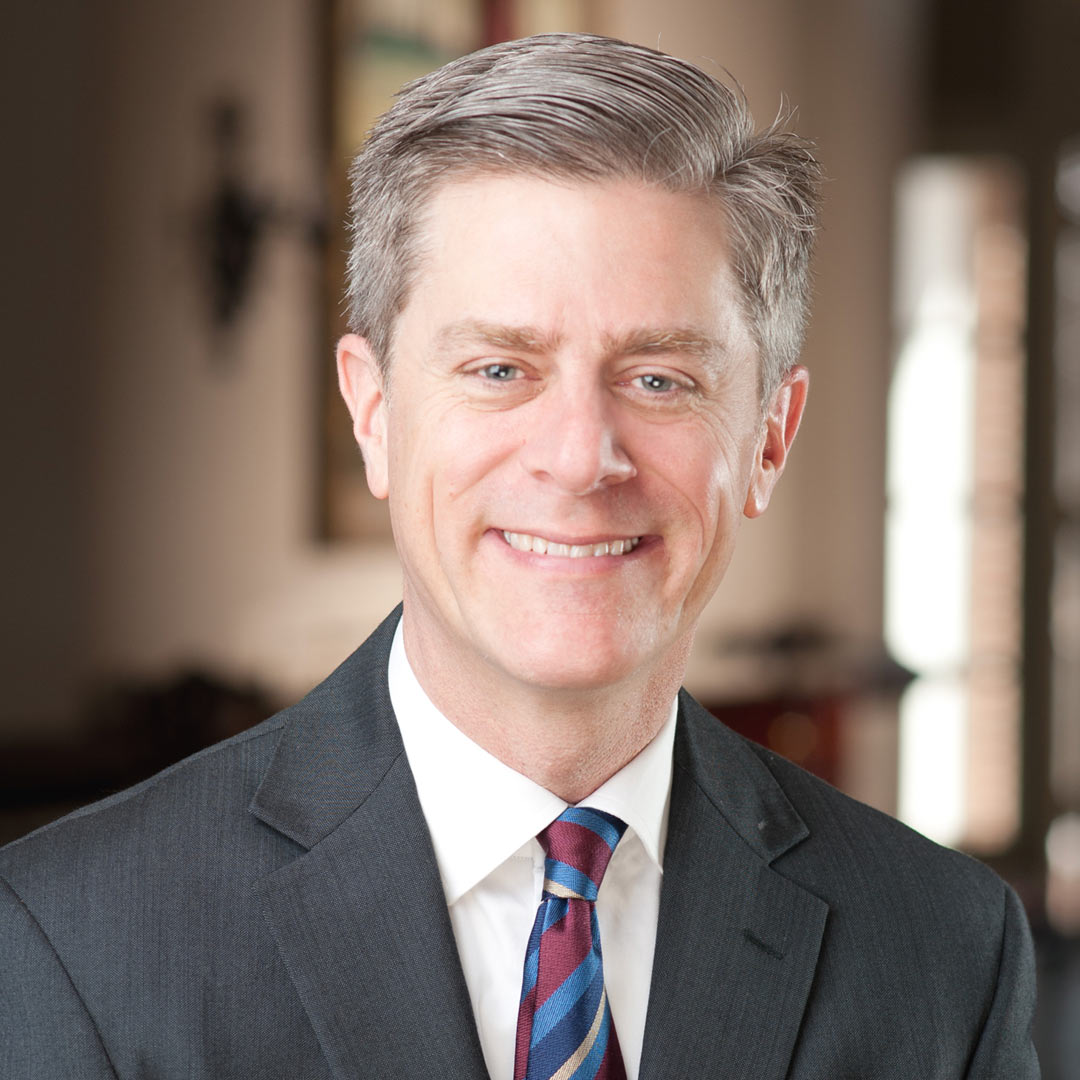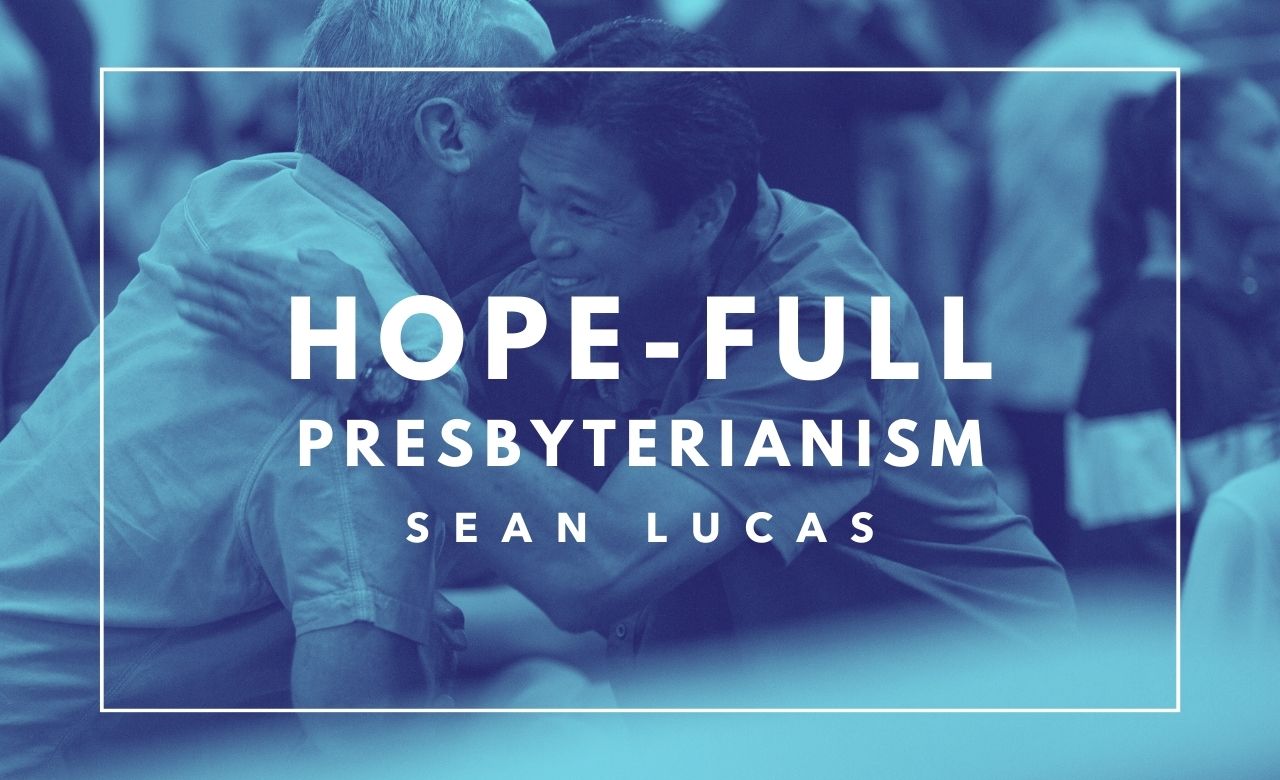For some, the title of this little essay is a bit of an oxymoron. It is like “low-fat chocolate” or “non-alcoholic whiskey.” Hope-full Presbyterianism? That’s as weird as “happy Presbyterians,” am I right? I used to tell audiences that I loved the cover of my 2006 book, On Being Presbyterian, because the people actually look happy being Presbyterian; that always gets a big laugh.
But I mean “Hope-full Presbyterianism” seriously. I wish that we could center ourselves around the fact that Presbyterianism as an identity communicates hope, namely, an earnest expectation that King Jesus by his Spirit is ruling over his church, its structures, and activities. In fact, it is not simply my wish that we could do this—it is vitally needful. The only way evangelical Presbyterianism will flourish over is for us to become a people who are full of hope in a world of increasing despair.
Two Perspectives on Presbyterianism
Over my twenty-plus years of participating in the courts of the Presbyterian church, I have noticed two fundamental perspectives on what Presbyterianism is all about.
We might call one perspective “watchmen-on-the-wall” Presbyterianism. This perspective highlights continuing sin to the near exclusion of the ongoing ministry of the Spirit in our midst. It suggests that all things tend toward entropy and apostasy (especially organizations) without any hope or possibility of Gospel renewal. It holds up the downfall of mainstream Presbyterianism as proof that denominations inevitably become bureaucratic, coercive, and abusive—and all too often use denominational power to coerce and abuse.
But there is another perspective, one we might call the “trust-our-brothers” approach. We might get at this perspective by asking the following: what if we believed that God by the Spirit of Jesus will rule over us? What if we believed that we need each other with all our differences in perspective and context? What if we knew that we couldn’t do ministry alone, that Presbyterianism means that ministry is not all local nor all national nor all regional, but all three at the same time (and global as well)? What if we believed that God has providentially brought women and men, from different cultures and colors, into a single denomination to begin to picture Revelation 7? What if we believed that formalized structures and processes are not evil nor are they the fool-proof solution to secure the church’s purity, but are helpful guides for moving us forward with agreed-upon processes toward biblical goals?
At the same time, what would it look like if we remember that the life of the church is not really about the structures or processes? What if we remember that it is about loving people as we assist, admonish, instruct, correct, pray, enjoy, delight, and rejoice with each other? What would it mean if we were willing to trust each other, to believe the best (and not the worst) about each other, and to willingly to confront one another should the worst come? What would it look like if we were willing not to show any partiality, but to love others for the strengths they offer and the struggles that are evident? What would it look like if we took the speck out of our (side’s) eye before we looked for the plank in someone else’s eye?
It would begin to look like biblical and hopeful Presbyterianism. It wouldn’t be perfect (after all, no New Testament church is). But it would be a step toward the reign of God in our midst, a move toward God’s will being done on earth as in heaven. And it would be a small move toward seeing one another as friends, as a membership, rather than competitors or, worse yet, enemies.
This (PCA) Membership
Each year at our church, we get a letter from the PCA Stated Clerk’s office. The letter gets routed to various folks on our staff asking for our year-end statistics, the most important of which, perhaps, is our communicant and non-communicant membership numbers. This annual survey is proof that we Presbyterians care about “membership.”
Of course, there are vows that people take to become members. Vows we take when we baptize our children and they are counted as non-communicant members. And further vows that some folks take to become officers. Some churches have vows for female leaders in the church or members of short-term mission trips. Those vows are important—they are promises that we make to God and to others. And these vows heighten the importance of membership and mark the beginning of belonging.
Hope-full Presbyterianism not only recognizes the vows, but recognizes that all who take those vows, even the people we might passionately disagree with or be disappointed in, are part of our membership. And they contribute something to this membership that we would miss if she or he weren’t here.
For me, the best picture of this comes from the author Wendell Berry and his book, Jayber Crow. The title character, Jayber, is the town barber who also takes care of the local church. One day as he was cleaning the church, he had a vision that shifted his understanding of his town, Port William, Kentucky, and his relationship to it:
What I saw now was the [Port William] community imperfect and irresolute but held together by the frayed and always fraying, incomplete and yet ever-holding bonds of the various sorts of affection. There had maybe never been anybody who had not been loved by somebody, who had been loved by somebody else and so on and on…It was a community always disappointed in itself, disappointing its members, always trying to contain its divisions and gentle its meanness, always failing and yet always preserving a sort of will toward goodwill. I knew that, in the midst of all the ignorance and error, this was a membership; it was a membership of Port William and of no other place on earth. My vision gathered the community as it never has been and never will be gathered in this world of time, for the community must always be marred by members who are indifferent to it or against it, who are nonetheless its members and maybe nonetheless essential to it. And yet I saw them all as somehow perfected, beyond time, by one another’s love, compassion, and forgiveness, as it is said we may be perfected by grace.
In the same way that the Port William membership was held together by bonds of affection, even for those who are disappointing or even disgraced, so it is for our church. This membership of the Presbyterian Church in America contains people who have been loved by somebody, who have been loved by somebody else. That affection gentles our meanness and contains our divisions as we have a will toward goodwill. Everyone is essential to it, even those who are indifferent to our membership or who even move against it, those who embarrass us or who try to cancel us.
Because we’ve all taken vows. We all belong. Christ by his Spirit rules over us. He is the one doing his work in and through us. It is Jesus’s church and we belong to him. And this messy membership is what God uses to advance his cause in his world. And that should fill us full of hope for our Presbyterian Church in America.
Born in Stratford, New Jersey, Sean moved up and down the eastern seaboard as a child. He graduated from Bob Jones University (BA, 1993; MA, 1994) and Westminster Theological Seminary (PhD, 2002). He was ordained as a Presbyterian minister in 2003, then served on the pastoral staff of Community Presbyterian Church (PCA), Louisville, Kentucky, and Covenant Presbyterian Church (PCA), St. Louis, Missouri. In 2009, he became Senior Pastor of the First Presbyterian Church, Hattiesburg, Mississippi, where he served until coming to serve as senior pastor at Independent Presbyterian Church, Memphis, Tennessee in 2017.
Sean has taught at two theological seminaries. He is presently the Chancellor’s Professor of Church History at Reformed Theological Seminary, where he has taught since 2011. Prior to that, he was chief academic officer and associate professor of church history at Covenant Theological Seminary, where he served from 2004 to 2009.
Sean has also written many books, including On Being Presbyterian: Our Beliefs, Practices, and Stories (2006); God’s Grand Design: The Theological Vision of Jonathan Edwards (2011); J. Gresham Machen (2015); and For a Continuing Church: The Roots of the Presbyterian Church in America (2015). He and his wife Sara have four adult children: Samuel, Elizabeth, Andrew, and Benjamin.

